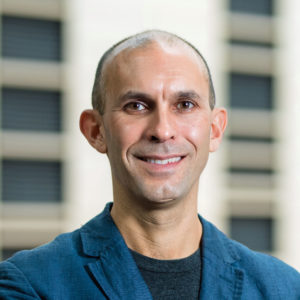May 13, 2020
In this episode, Wendy speaks with cognitive scientist Anil Seth about his work on consciousness and the mind. They discuss:

- the idea of the brain as a prediction machine,
- how perception is a kind of “controlled” hallucination,
- the self as a construction, and implications for psychiatric disorders,
- connections between this view of the mind and Buddhist ideas,
- how these views might inform our subjective experience,
- the important role of the body in perception,
- the connection between life and mind (and his views on panpsychism),
- emotions as prediction and interoception,
- the question of free will,
- communicating science to a public audience, and other topics.
Anil Seth is Professor of Cognitive and Computational Neuroscience at the University of Sussex, where he is also Founding Co-Director of the Sackler Centre for Consciousness Science. He seeks to understand the biological basis of consciousness by bringing together research across neuroscience, mathematics, computer science, psychology, philosophy and psychiatry. He has published more than 180 papers and is listed in 2019 Web of Science ‘highly cited researcher’ index, which recognizes the world’s most influential researchers over the past decade. Anil also regularly publishes articles in the popular media about the mind and consciousness, and his TED Talk has been viewed over 9 million times. His new book Being You will be published in 2021.
Resources
Website: anilseth.com
Twitter: @anilkseth
- TED Talk: Your brain hallucinates your conscious reality
- Article: The neuroscience of reality. Scientific American (feature article).
- Article: Reality is not what it seems – and neither are you! Kidspirit PerSpectives (winner of the 2019 Kidspirit PerSpectives award)
- Book: Being You (2021)
